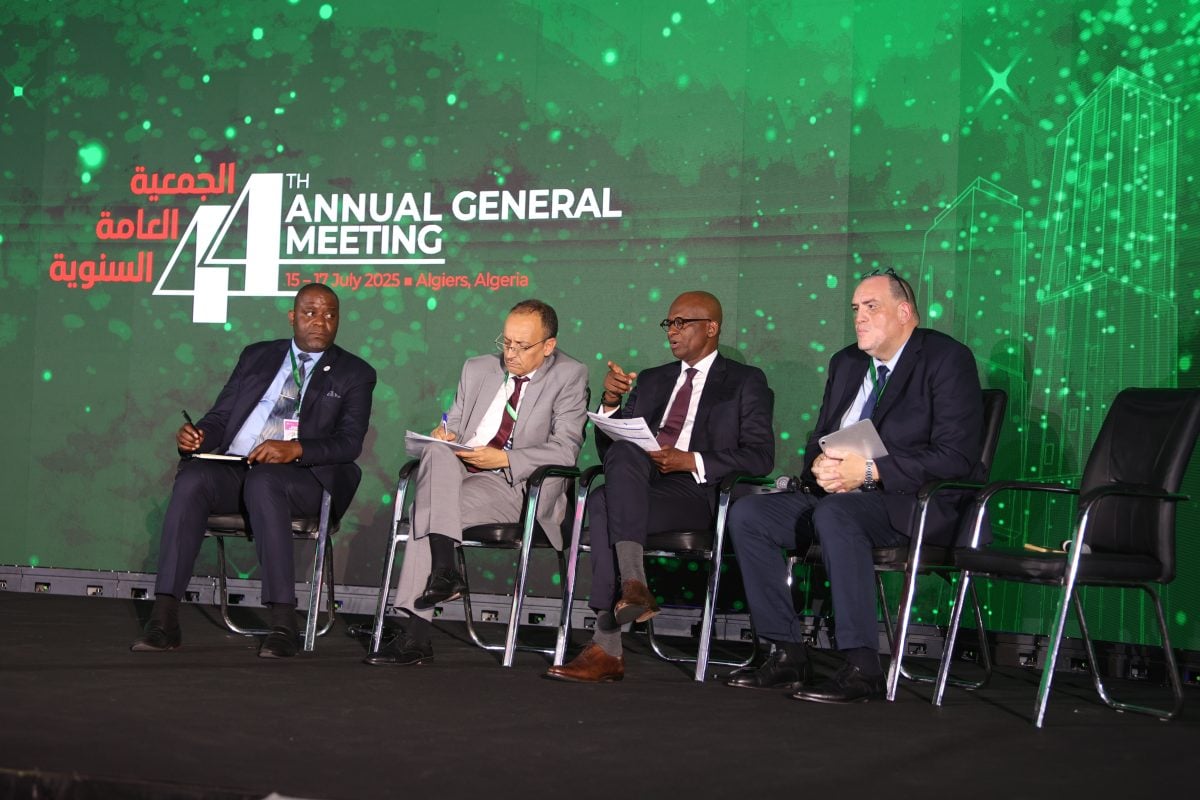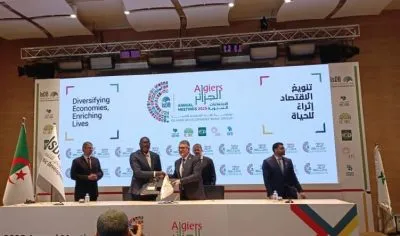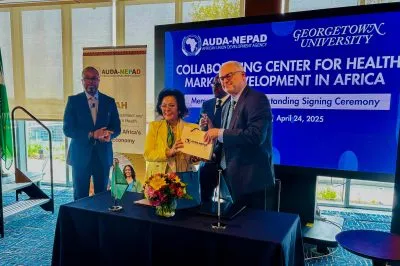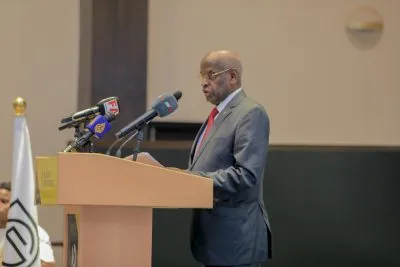This article was produced with the support of Shelter Afrique Development Bank
Following the official launch of Shelter Afrique Development Bank’s 44th Annual General Meeting in Algiers, two high-level debates were held in the afternoon, demonstrating how housing and urban development issues in Africa are mobilising a wide range of stakeholders and generating keen interest across the continent.
Decision-makers, international experts and institutional actors highlighted the urgency of the situation and Africa’s creativity in the search for sustainable solutions.
Focus on governance
The first session, which focused on national housing policies and governance, engaged the attention of participants in the major institutional and financial issues facing the sector. Mohamed Mordjani, Director General of Housing at the Algerian Ministry of Housing, provided a clear diagnosis: “Access to decent housing remains a national priority, even as demographic challenges loom large. Our task is to orchestrate smart governance and innovate in the mobilisation of resources to build territorial equity.” His speech highlighted the need for greater rigour and transparency in the conduct of public policies, while stressing that the adaptation of regulatory and financial frameworks remains a major challenge.
Mohamed Tayeb Abdelouahed, representative of the Fonds de Garantie (Algerian Guarantee Fund), spoke about the rise of financing mechanisms tailored to the social fabric. Aware of the limitations of traditional instruments, he called for more innovative solutions to secure credit for housing construction and acquisition. ‘Guaranteeing is encouraging. We have a duty to make credit available to as many people as possible, while controlling systemic risk.’ According to him, this approach is enjoying increased confidence from the banking sector, which is now a key partner in the transformation of the market.
Astrid Hass, an urban economist, enlivened the conversation with an international perspective while keeping it grounded in African realities: ‘The efficient mobilisation of resources, particularly through municipal finance and the creation of hybrid ecosystems, is essential.’ She went further to add that decentralisation, when accompanied by real local empowerment, makes it possible to connect financial innovation and inclusive governance, citing Asian and African examples that prove the value of a context-specific approach.
Hermann Kamonomono, of SNI Gabon, emphasised the need for public and parastatal operators to be involved in long-term planning. In his view, ‘we need leadership based on mutual trust, transparency in resource allocation and the ability to adjust to the pace of people’s needs.’ He shared experiences from Central African capitals where the pooling of land, expertise and financing is presenting significant opportunities for urban transformation.
Social innovation in the field
The second session focused on social innovation and inclusive approaches to accessible, quality and economically viable housing. Dr Ahmed Nouh’s presentation on the pilot project in Ksar de Tafilalt, in Ghardaïa, southern Algeria, captivated the audience with descriptions of its originality and the harmonious blending of heritage, traditional techniques and new sustainability standards. ‘We have proven that integrating the social fabric and enhancing old buildings provides well-being and a sense of belonging, while Jerry Simu, who heads a large affordable housing programme in Kenya, spoke of the progress made thanks to active community participation and public-private collaboration. He emphasised financial models that offer genuine accessibility and stressed the importance of supervised self-build projects: ‘Inclusive housing is a driver of collective empowerment: it creates value, stabilises families and stimulates growth.’ “
Sihem Lassel, representative of the National Housing Bank, Algeria (Banque Nationale de l’Habitat), detailed the leading role played by her organisation in financing housing in Algeria. She made the point that banking innovation – credit carrying, partnerships with insurers, digitisation of processes – promotes household solvency and the proliferation of inclusive projects. ‘Our ambition is to streamline the financing chain and create a virtuous dynamic across the entire sector.’
New momentum in Africa
As the discussions progressed, one thing became clear: Africa is moving forward, drawing strength from its unique characteristics and successfully combining institutionalisation with innovation, inclusion and profitability. Against a backdrop of diverse approaches and shared ambition, the work carried out in Algiers is providing a unique example of a new African housing pact that is both rooted in the reality of citizens’ lives and open to the promises of modernity.

 Sign in with Google
Sign in with Google 



